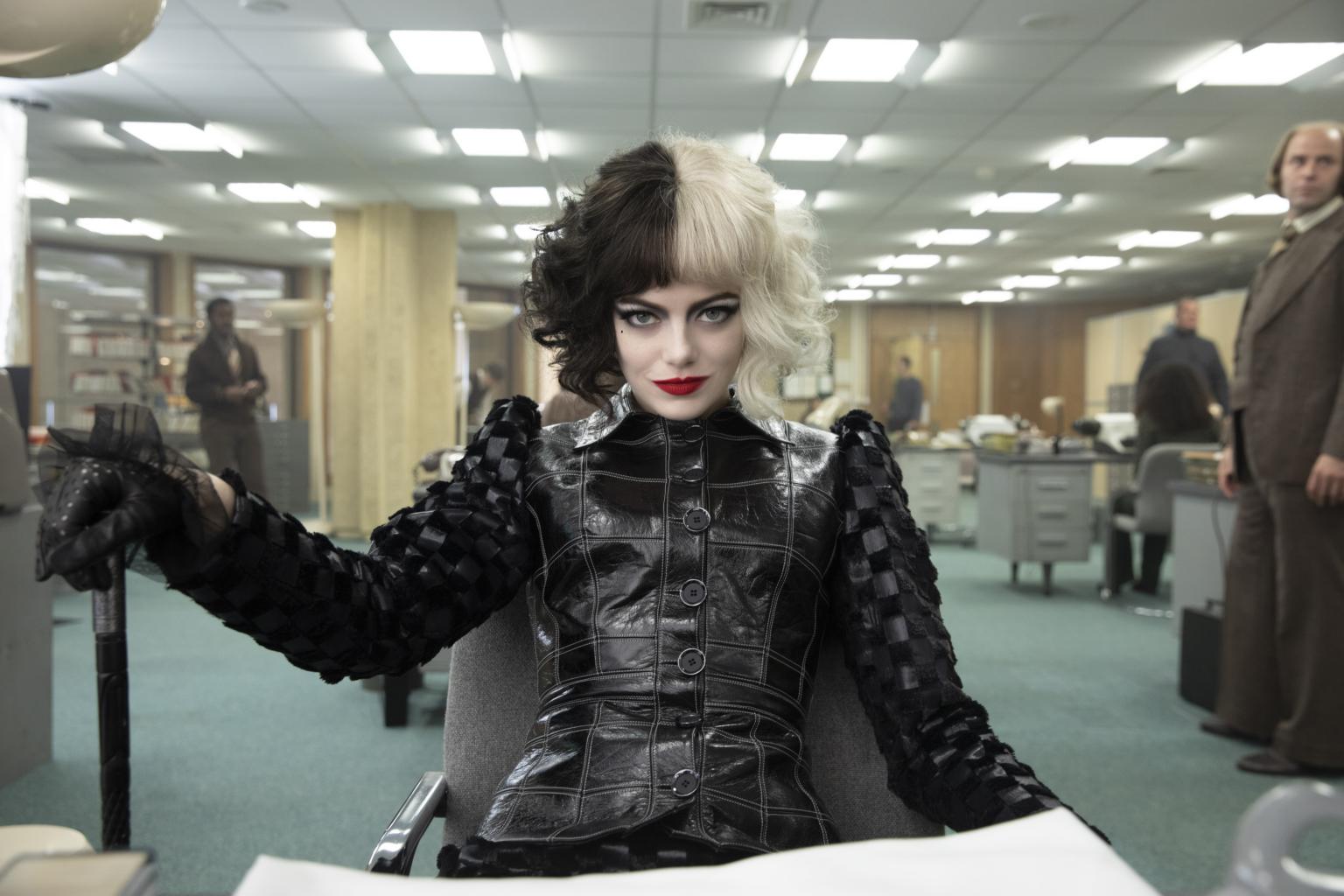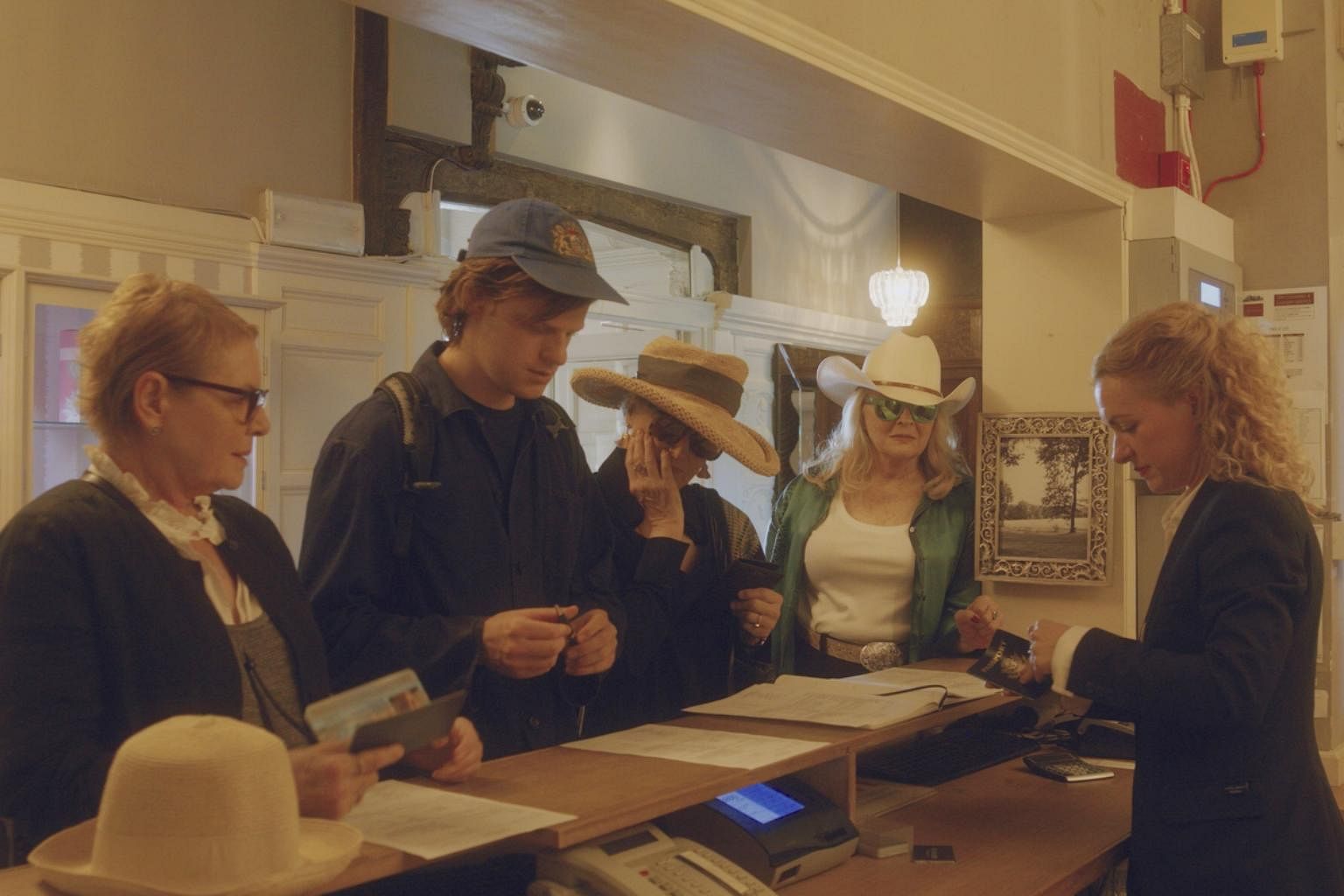At The Movies: Cruella is a fun visual feast
Sign up now: Get ST's newsletters delivered to your inbox

Cruella is a visually delightful, crisply paced comedy that proves that sometimes, putting a work of art together by committee works.
PHOTO: THE WALT DISNEY CO
Cruella (PG)
134 minutes, opens May 27 in cinemas, from May 28 on Disney+ Premier Access
4 stars
This visually delightful, crisply paced comedy proves that sometimes, putting a work of art together by committee works. For example, the list of writers who helped create this comedy runs to five names, but note that the woman who penned the 2006 fashion industry satire The Devil Wears Prada, Aline Brosh McKenna, is here as well as Tony McNamara, the man who co-wrote 2018 period romp The Favourite.
As Amazon likes to say, if you liked those, you will like Cruella because their combined DNA is all over this villain origin story. Add to that director Craig Gillespie, who helmed I, Tonya (2017), the Tonya Harding biopic that shows he knows how to make ambitious, amoral young women not just interesting, but also relatable and sympathetic.
The film begins in the mid-1960s with Estella (Tipper Seifert-Cleveland), a girl whose chaotic ways are seen by everyone as a character defect. When her bad behaviour causes a tragedy to occur, she flees to London, where she falls in with street boys and grows into a young woman (Emma Stone) whose dreams of a career in fashion design are thwarted by lack of money and opportunity.
She schemes her way into the ground floor of the industry and meets the Baroness (Emma Thompson), the imperious founder of a haute couture empire. The sudden arrival of a masked punk-rocker fashionista who calls herself Cruella causes a flurry of media excitement.
Punk rock fashion has roots in kink gear, so its PG-rated appropriation steers clear of its edgier aspects. In one scene, Estella carries out an unauthorised trash chic makeover of a staid department store window display. Passers-by are scandalised by it, but the film's audience never sees it in full.
Instead of leaning into the main character's cruelty, the film prefers to make her cuddly and declining to show the window display goes towards that goal. It's annoying, but this and other instances in which she is made mild instead of malicious are disappointing.
Still, there is an irresistible playfulness at work that makes the production the closest thing to a musical without having characters break into song. That, and the frocks. It would have been deadly for a movie as fashion-centred as this to not deliver on costume design, but thankfully, the outfits worn by both Emmas are, as they say, something else.
Let Them All Talk (NC16)
108 minutes, now showing on HBO Go and HBO
4 stars
Acclaimed film-maker Steven Soderbergh is famed for a couple of things. First, the maker of the Oscar-winning crime drama Traffic (2000) and the prescient pandemic drama Contagion (2011) likes to say he is retiring from making them, before popping up with another film. Also, he likes a technical challenge.
He shot the psychological thriller Unsane (2018) on an iPhone 7 Plus. For this movie, a light drama-comedy about simmering grudges and leaving things unsaid until it is too late, he herded a gaggle of highly talented actors on board the cruise ship Queen Mary 2 during one of its regular trans-Atlantic crossings. There, with the actors using mostly improvised dialogue and minimum gear, he filmed this.

Celebrated author Alice Hughes (Meryl Streep) has been invited to the United Kingdom to receive yet another prestigious award, but poor health keeps her from flying. Her agent Karen (Gemma Chan), in a bid to get into Alice's good graces, pulls strings to get the writer and her two old friends, Roberta (Candice Bergen) and Susan (Dianne Wiest), cabins on the Queen Mary 2 in return for Alice giving a talk during the passage. Alice's nephew Tyler (Lucas Hedges) comes along as her helper.
During the journey, over mealtimes, deck walks and card games, they come to learn uncomfortable truths about how each views the others.
If one had not been told about Soderbergh's guerilla-style approach, it would be hard to tell from the film - there is nothing to fault in the lighting, sound and camera work.
The naturalism in the speech patterns is obvious, even with the actors using a screenplay by Deborah Eisenberg as a guide. Characters talk over one another and also generally interact with each other, in a way that is never seen outside of other improvised works, such as the long-running HBO comedy series Curb Your Enthusiasm (2000 to present).
But in Soderbergh's hands, the aesthetic is the opposite of mumblecore, the indie format that relies on improvisation and can be off-puttingly self-indulgent. The trio of women at the core - Streep's Alice, Bergen's Roberta and Wiest's Susan - enunciate wonderfully, of course, but more importantly, chatter is not an end in itself, as is often the case in mumblecore. All the dialogue here is in service of character and plot.
Admittedly, there is not much plot here to speak of. What Soderbergh is counting on is that if you were stuck on a ship in the middle of the Atlantic, eavesdropping on the conversations of these three women would be the best form of entertainment to be had on board. And he would be right.


